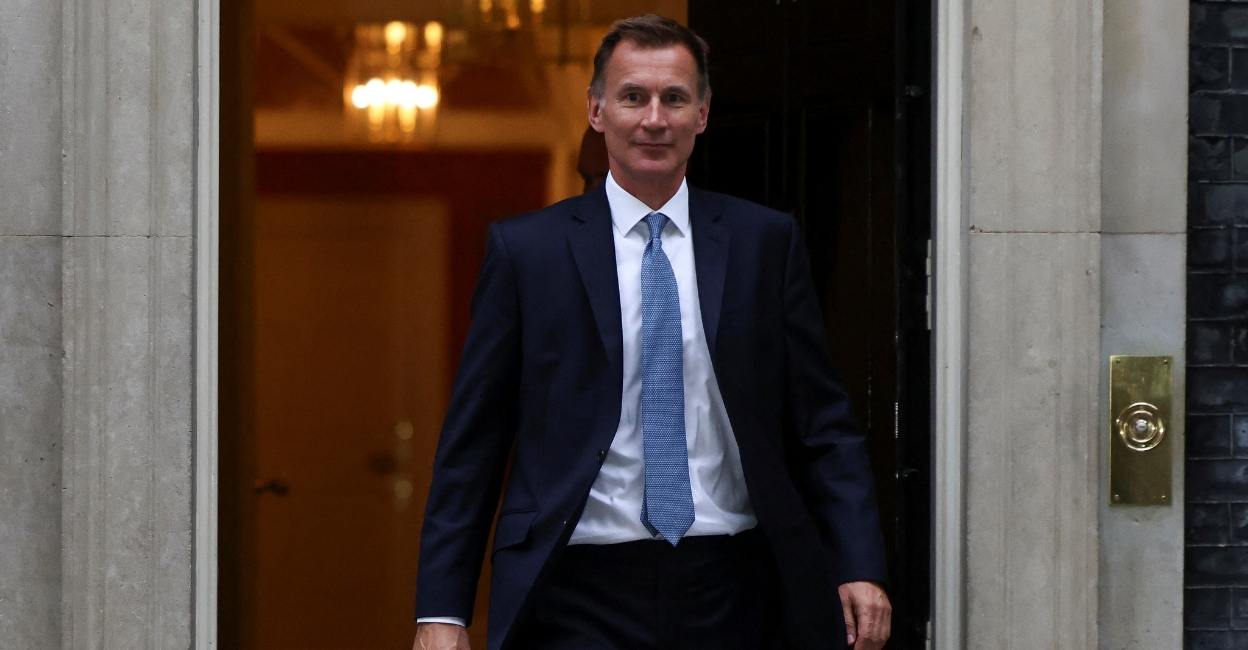Jeremy Hunt named Britain's new finance minister

Mail This Article
London: Former foreign minister Jeremy Hunt has been appointed Britain's finance minister, Prime Minister Liz Truss's office said on Friday, following Kwasi Kwarteng's resignation from the post after less than six weeks in the job.
A former foreign minister, Hunt has twice been unsuccessful in running for the governing Conservative Party's leadership, once losing to Boris Johnson and then being knocked out in the first round of voting in a contest which saw Truss take the prize.
Seen as on the centre-right of the party, Hunt endorsed Truss's leadership rival, former finance minister Rishi Sunak to become prime minister, and is seen by many in the party as a safe pair of hands.
Hunt, who has also previously served as health minister and culture minister, becomes Britain's fourth finance minister in as many months.
The move is also being seen as an attempt by Truss to reach out to angry lawmakers in her ruling Conservative Party. They have voiced discontent with her performance just a month into the job, with polls showing the opposition Labour Party as many as 30 points ahead.
"The appointment of Jeremy Hunt as Chancellor is a wise choice," Conservative lawmaker Bernard Jenkin said on Twitter.
"He is trusted and respected across parliament. We must now be calm. Rash talk of ditching the PM, or calls for a general election, will not calm the financial markets."
Tax slashing
Hunt has a history of supporting tax cuts, and Truss said she views him as someone who shares her same aim of creating a high-growth, low-tax economy.
"He's one of the most experienced and widely respected government ministers and parliamentarians and he shares my convictions and ambitions for our country," she told reporters.
Truss was speaking as she announced she would keep a planned increase in corporation tax paid by businesses, scrapping plans to keep it at 19 per cent after an adverse market reaction to last month's announcement of her and Kwarteng's economic package.
During his own failed bid to succeed Johnson, Hunt had pledged to cut corporation tax to 15 per cent, help ignite the stagnating British economy and remove business rates, the charge levied on commercial properties, for five years for economically-struggling areas.

"We need to start up Britain now," he told the Sunday Telegraph when he announced his candidacy. "That means sending a signal that in the first chapter of our post-Brexit future, we’re going to be the most pro-business economy in the Western world."
Ironically, though, while Truss has said she would press ahead with a cut to income tax, Hunt said at the time that could wait. He also promised to press ahead with a plan to raise the National Insurance payroll tax to fund health spending - a measure that Truss will reverse.
Commentators said he was faced with some of the same problems as his predecessor - how to balance the books to make billions of pounds of tax cuts while maintaining public spending.
Truss's office also said Edward Argar had replaced Chris Philp as Chief Secretary to the Treasury, the second most important job in the department.

